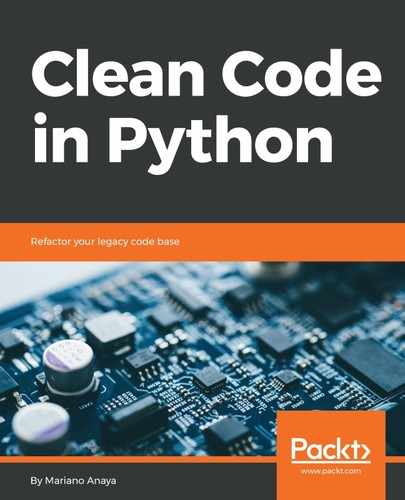Context managers are a distinctively useful feature that Python provides. The reason why they are so useful is that they correctly respond to a pattern. The pattern is actually every situation where we want to run some code, and has preconditions and postconditions, meaning that we want to run things before and after a certain main action.
Most of the time, we see context managers around resource management. For example, on situations when we open files, we want to make sure that they are closed after processing (so we do not leak file descriptors), or if we open a connection to a service (or even a socket), we also want to be sure to close it accordingly, or when removing temporary files, and so on.
In all of these cases, you would normally have to remember to free all of the resources that were allocated and that is just thinking about the best case—but what about exceptions and error handling? Given the fact that handling all possible combinations and execution paths of our program makes it harder to debug, the most common way of addressing this issue is to put the cleanup code on a finally block so that we are sure we do not miss it. For example, a very simple case would look like the following:
fd = open(filename)
try:
process_file(fd)
finally:
fd.close()
Nonetheless, there is a much elegant and Pythonic way of achieving the same thing:
with open(filename) as fd:
process_file(fd)
The with statement (PEP-343) enters the context manager. In this case, the open function implements the context manager protocol, which means that the file will be automatically closed when the block is finished, even if an exception occurred.
Context managers consist of two magic methods: __enter__ and __exit__. On the first line of the context manager, the with statement will call the first method, __enter__, and whatever this method returns will be assigned to the variable labeled after as. This is optional—we don't really need to return anything specific on the __enter__ method, and even if we do, there is still no strict reason to assign it to a variable if it is not required.
After this line is executed, the code enters a new context, where any other Python code can be run. After the last statement on that block is finished, the context will be exited, meaning that Python will call the __exit__ method of the original context manager object we first invoked.
If there is an exception or error inside the context manager block, the __exit__ method will still be called, which makes it convenient for safely managing cleaning up conditions. In fact, this method receives the exception that was triggered on the block in case we want to handle it in a custom fashion.
Despite the fact that context managers are very often found when dealing with resources (like the example we mentioned with files, connections, and so on), this is not the sole application they have. We can implement our own context managers in order to handle the particular logic we need.
Context managers are a good way of separating concerns and isolating parts of the code that should be kept independent, because if we mix them, then the logic will become harder to maintain.
As an example, consider a situation where we want to run a backup of our database with a script. The caveat is that the backup is offline, which means that we can only do it while the database is not running, and for this we have to stop it. After running the backup, we want to make sure that we start the process again, regardless of how the process of the backup itself went. Now, the first approach would be to create a huge monolithic function that tries to do everything in the same place, stop the service, perform the backup task, handle exceptions and all possible edge cases, and then try to restart the service again. You can imagine such a function, and for that reason, I will spare you the details, and instead come up directly with a possible way of tackling this issue with context managers:
def stop_database():
run("systemctl stop postgresql.service")
def start_database():
run("systemctl start postgresql.service")
class DBHandler:
def __enter__(self):
stop_database()
return self
def __exit__(self, exc_type, ex_value, ex_traceback):
start_database()
def db_backup():
run("pg_dump database")
def main():
with DBHandler():
db_backup()
In this example, we don't need the result of the context manager inside the block, and that's why we can consider that, at least for this particular case, the return value of __enter__ is irrelevant. This is something to take into consideration when designing context managers—what do we need once the block is started? As a general rule, it should be good practice (although not mandatory), to always return something on the __enter__.
In this block, we only run the task for the backup, independently from the maintenance tasks, as we saw previously. We also mentioned that even if the backup task has an error, the __exit__ will still be called.
Notice the signature of the __exit__ method. It receives the values for the exception that was raised on the block. If there was no exception on the block, they are all none.
The return value of __exit__ is something to consider. Normally, we would want to leave the method as it is, without returning anything in particular. If this method returns True, it means that the exception that was potentially raised; it will not propagate to the caller and will stop there. Sometimes, this is the desired effect, maybe even depending on the type of exception that was raised, but in general it is not a good idea to swallow the exception. Remember: errors should never pass silently.
